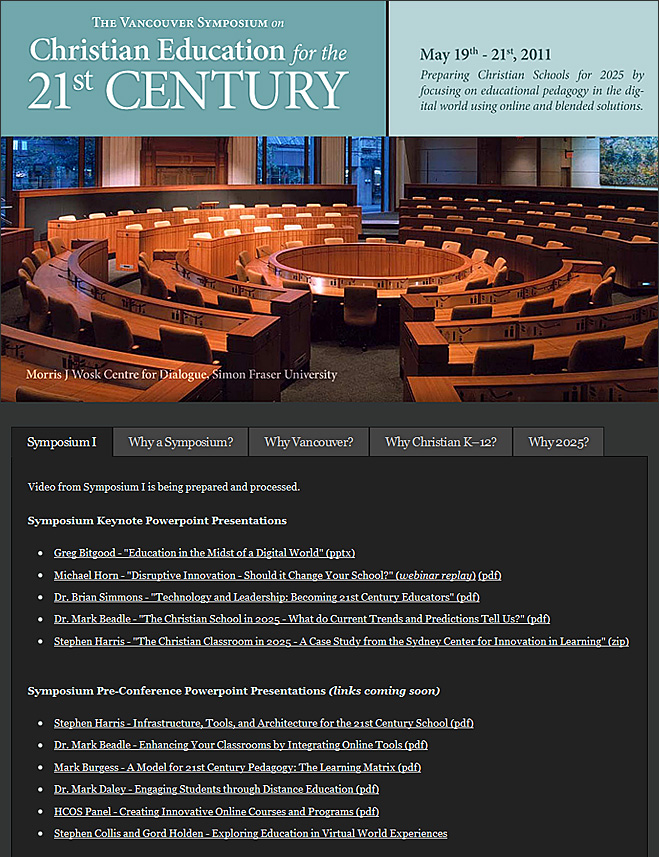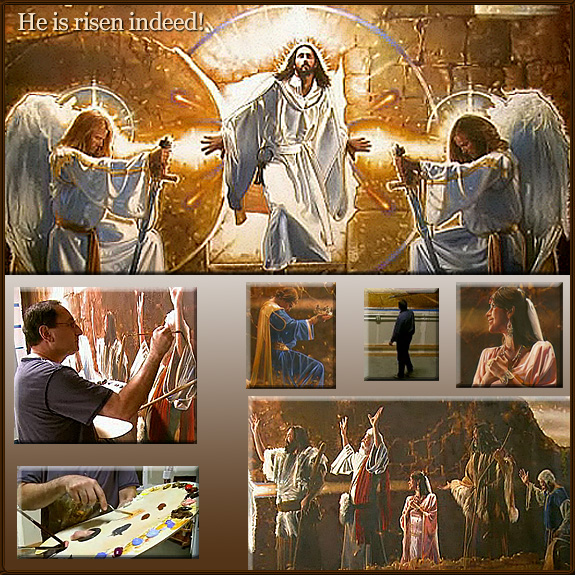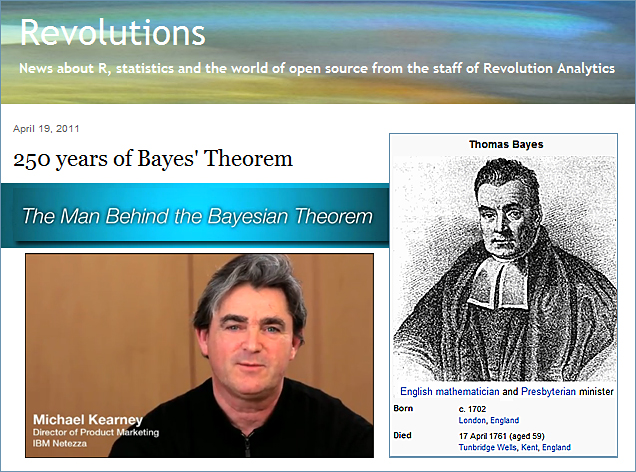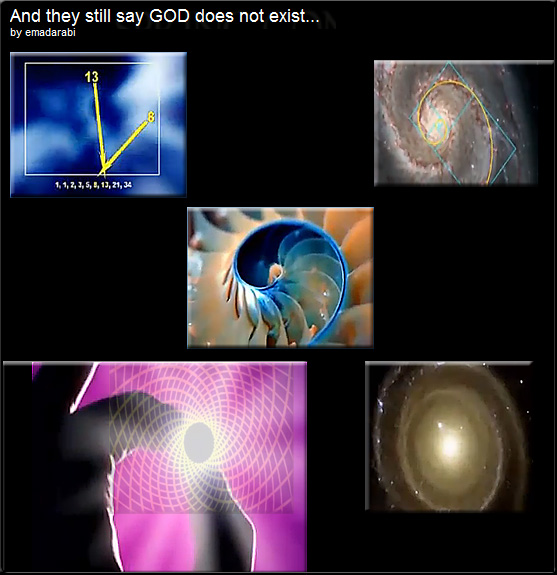Proverbs 15:1
A gentle answer turns away wrath, but a harsh word stirs up anger.
Revelation 21: 2-4 — from BibleGateway.com
(Regarding the recent end of the world prediction, scripture never mentions a specific day. Instead, Christ states that only the Father knows when that time will be.)
John 3:17 — from BibleGateway.com
Psalm 127:1 (NIV) — from BibleGateway.com
1 Unless the LORD builds the house,
the builders labor in vain.
Unless the LORD watches over the city,
the guards stand watch in vain.
17 But the wisdom that comes from heaven is first of all pure; then peace-loving, considerate, submissive, full of mercy and good fruit, impartial and sincere. 18 Peacemakers who sow in peace reap a harvest of righteousness.
Doxology
33 Oh, the depth of the riches of the wisdom and[a] knowledge of God!
How unsearchable His judgments,
and His paths beyond tracing out!
2 Chronicles 7:14 — from Bible Gateway’s Verse of the Day
About the mural:
“The Resurrection” is a 12’ x 40’ mural, oil on canvas. It is a depiction of the moment of Jesus emerging from the tomb, with waiting angels, fainted roman guards, and a crowd of Biblical notables excitedly waiting for His exit. They include, on right of Christ, Moses, David, Isaiah & Abraham. On the left of Christ are, Elijah, Noah, Esther, John the Baptist & Daniel. These are part of the ones referred to in Hebrews 12:1 as “the great cloud of witnesses.” On the upper right of the painting is the remnants of the place Jesus was earlier crucified, namely Mt. Calvary, also known as Golgotha, the place of the skull.
What happened after the Resurrection? — from Bible Gateway Blog
Christians around the world have spent a lot of time over the last few weeks pondering the Gospel accounts of Jesus’ death and resurrection (and here at the Bible Gateway blog, we spent plenty of time discussing them too). During Easter week, we read the familiar stories of the Triumphal Entry, the Last Supper, the crucifixion… and then with the Resurrection on Easter Sunday, the story ends. Right?
Not quite. While the Gospels of Matthew and Mark end shortly after the Resurrection, Luke and John provide extra detail about what Jesus did during the time between his resurrection and his ascent into heaven. If your Gospel reading stopped at the Resurrection, you’re missing out on several interesting stories…
Easter is coming — from BibleGateway.com
Today is Good Friday, when Christians around the world reflect on the arrest, trial, and execution of Jesus Christ. In the Christian worldview, it’s one of the most important dates in all of history, trumped in significance only by the glorious events of Resurrection Day a few days later.
On the surface, the story of Good Friday describes something historically unremarkable (although certainly terrible): the unjust martyrdom of a visionary. Certainly many religious leaders and idealists have met undeserved death at the hands of brutal establishments throughout history, all the way up to the present day. But as you read the Gospel accounts of Jesus’ final hours before crucifixion, you cannot escape the sense that this is different. This is injustice on a cosmic scale; this is humanity literally spitting in the face of its loving Creator.
But we can read this story without despairing because we know how it ultimately ends. The God who works all things for the good will bring unimaginable glory and grace out of even the murder of his own son.
Have you read the story of Good Friday recently? So much happened on Good Friday that it’s easier to just read it in its entirety rather than isolate the individual stories. It’s told from four different perspectives in the Bible: Matthew 26:47-27:61, Mark 14:42-15:47, Luke 22:47-23:56, and John 18-19.
It’s a bleak story, but we know a truth that puts even this in perspective: Easter is coming.
From DSC:
I was reading this morning about a pastor (who I’ve heard preach before and is a wonderful person) who had to go through a seriously dark time — brought on by prostate cancer — which led him into a painful journey through his own desert before he was able to reach a deeper level of spirituality with God. Suffering, it seems, is a part of the Christian’s journey — even if it’s unwanted.
I have to admit, that often times, I wish it were not so. I wish I/we all had the ability to listen better and to learn from others; I wish that inclination was more a part of human nature — especially learning from others’ experiences in the past. I wish that we didn’t need 2″ x 4″‘s onside our heads in order for us to wake up and to change our ways. (Brief tangent: People don’t like to hear bad news. We humans have never liked to hear bad news; ever. Think of global warming. Think of the U.S. Federal deficit — and the growing ramifications that astronomical debt brings with it.)
I was reflecting on the story of Jonah the other day…thinking, I’ve missed the whole point of Jonah. Instead of focusing on the large fish and how Jonah at first rebelled/ran away from God and then later obeyed (which is also a valuable part of the story), I should have also focused on the more important lesson. That is, that the people of Nineveh actually listened, heard the message, heeded the warning from the LORD, and then actually changed their ways! What a concept….and one that we Americans need to re-learn before our feet slip even further.
From DSC:
First of all, I ran across this item:
Which reminded me of this item:
Which reminded me of some great feedback from Randall Pruim, Associate Professor of Mathematics and Statistics at Calvin College, who wasn’t impressed with the importance or mysteriousness of this particular sequence or the above video clip…but who also provided me with some papers, each with the words “The Unreasonable Effectiveness of Mathematics” in the title:
- Wigner, E. (Feb., 1960). The unreasonable effectiveness of mathematics in the natural sciences. Communications in Pure and Applied Mathematics, Vol. 13(1). New York: John Wiley & Sons, Inc. Retrieved at http://www.dartmouth.edu/~matc/MathDrama/reading/Wigner.html.
- Hamming, R.W. (Feb., 1980). The unreasonable effectiveness of mathematics. The American Mathematical Monthly, Vol. 87(2). pp. 81-90. Retrieved from http://www.math.lsa.umich.edu/~mduchin/UCD/111/readings/hamming.pdf
Anyway, I can’t say I understand all of this. But I believe God’s fingerprints are on many events, things, and changes that we experience — some of these things we see, but many are invisible.
May your Maundy Thursday, Good Friday, and Easter morning be especially meaningful this year for you and yours! Here’s to our Creator, Redeemer, and Friend!
Peace,
Daniel Christian
God’s Timing — from Insight for Living by Charles Swindoll
Read Exodus 2:11–14
Excerpt:
I’m convinced Moses was doing more than grandstanding. I believe he was absolutely sincere. He didn’t see himself murdering a cruel slave driver as much as courageously striking a blow for God’s people. The desire to do something right overcame him. His problem? He dedicated himself to the will of God, but not to the God whose will it was.
Let that thought sink in. You and I can become so dedicated to the will of God, we can be so driven by a blind sense of purpose, that we might inadvertently take matters into our own hands and leave God completely out of the loop. Been there, done that?
…
But all the while, God waits for you to seek His counsel. If you act without discerning His timing, you may lose the smile of divine favor. He will not bless what He has not ordained. You may truly sense that God has something for you to accomplish in a certain area. But if you aren’t vigilant, if you aren’t daily humbling yourself before Him, seeking His face, discerning His timing, operating under the Spirit’s control, you may push and force your way prematurely into that place where God wanted you, but you will not have arrived in His own time.
From DSC:
A great reminder for me…perhaps the message may resonate with you as well…
20 But Christ has indeed been raised from the dead, the firstfruits of those who have fallen asleep. 21 For since death came through a man, the resurrection of the dead comes also through a man. 22 For as in Adam all die, so in Christ all will be made alive.
Holy Week Timeline Visualization — from BibleGateway.com
Jesus at Gethsemane — Matthew 26:36-47 — from BibleGateway.com (emphasis DSC)
36 Then Jesus went with his disciples to a place called Gethsemane, and he said to them, “Sit here while I go over there and pray.” 37 He took Peter and the two sons of Zebedee along with him, and he began to be sorrowful and troubled. 38 Then he said to them, “My soul is overwhelmed with sorrow to the point of death. Stay here and keep watch with me.”
39 Going a little farther, he fell with his face to the ground and prayed, “My Father, if it is possible, may this cup be taken from me. Yet not as I will, but as you will.”
40 Then he returned to his disciples and found them sleeping. “Couldn’t you men keep watch with me for one hour?” he asked Peter. 41 “Watch and pray so that you will not fall into temptation. The spirit is willing, but the flesh is weak.”
42 He went away a second time and prayed, “My Father, if it is not possible for this cup to be taken away unless I drink it, may your will be done.”
43 When he came back, he again found them sleeping, because their eyes were heavy. 44 So he left them and went away once more and prayed the third time, saying the same thing.
45 Then he returned to the disciples and said to them, “Are you still sleeping and resting? Look, the hour has come, and the Son of Man is delivered into the hands of sinners. 46 Rise! Let us go! Here comes my betrayer!”
From DSC:
As I read these verses this morning, I was reminded how huge Christ’s suffering was at this point. Christ doesn’t use words like overwhelmed — another version says “exceedingly” — very often. In fact, I’ve often marveled at how understated He puts things. (Contrast this to today’s manufactures who have the nerve to play the Halleluhah Chorus for a new model of car or a new product; Christ didn’t do that kind of thing, though He had every right to).
He must have wanted this cup to pass without having to drink from it. Later, when a fight started to break out, He said to His disciples, “Or do you think that I cannot now pray to My Father, and He will Provide Me with more than twelve legions of angels?” In other words, I don’t need your swords. I need to drink from this cup in order to fulfill scripture.
I reminded of His bravery and courage; and most of all, His love for us.
Thank you LORD!













